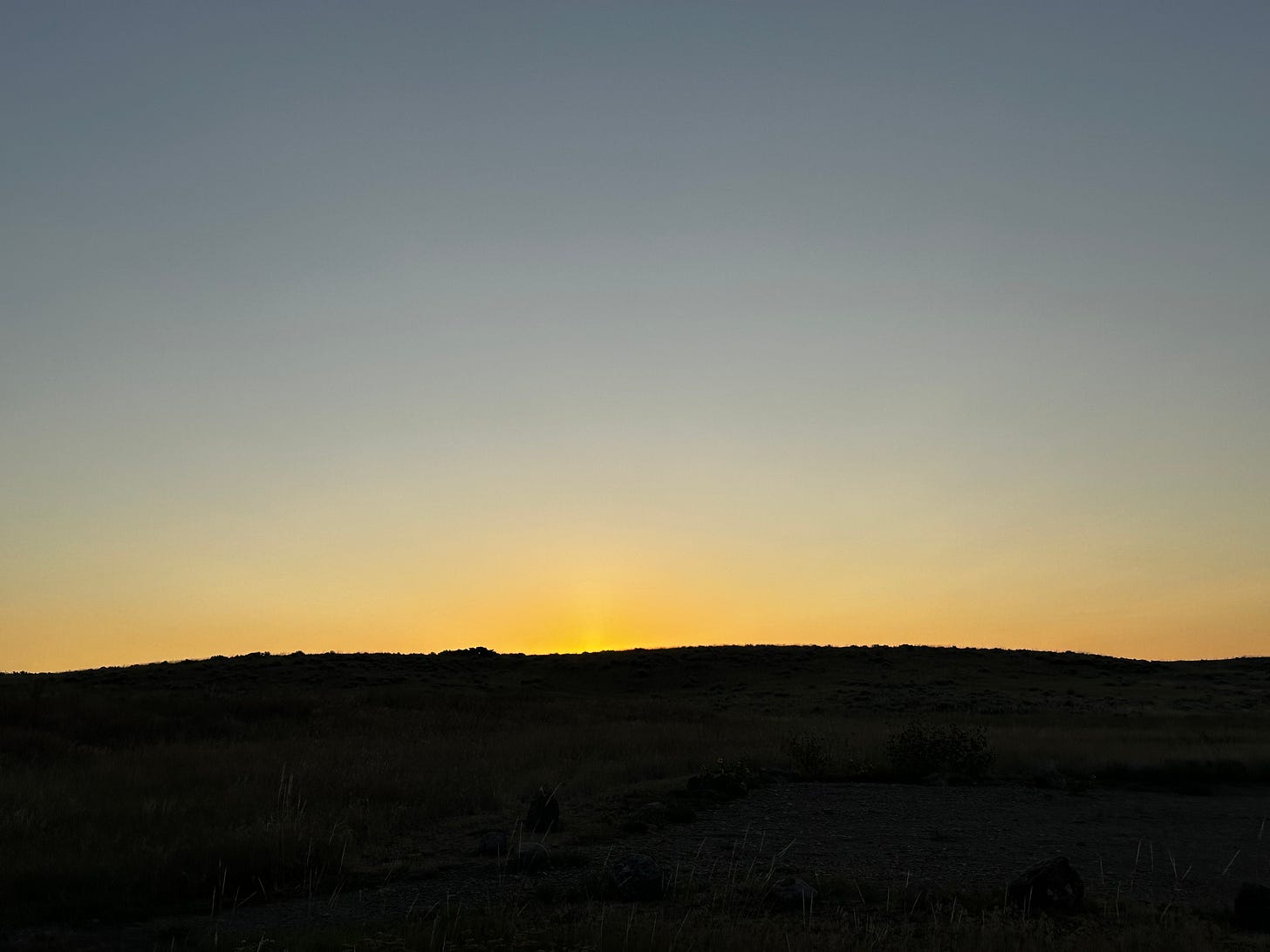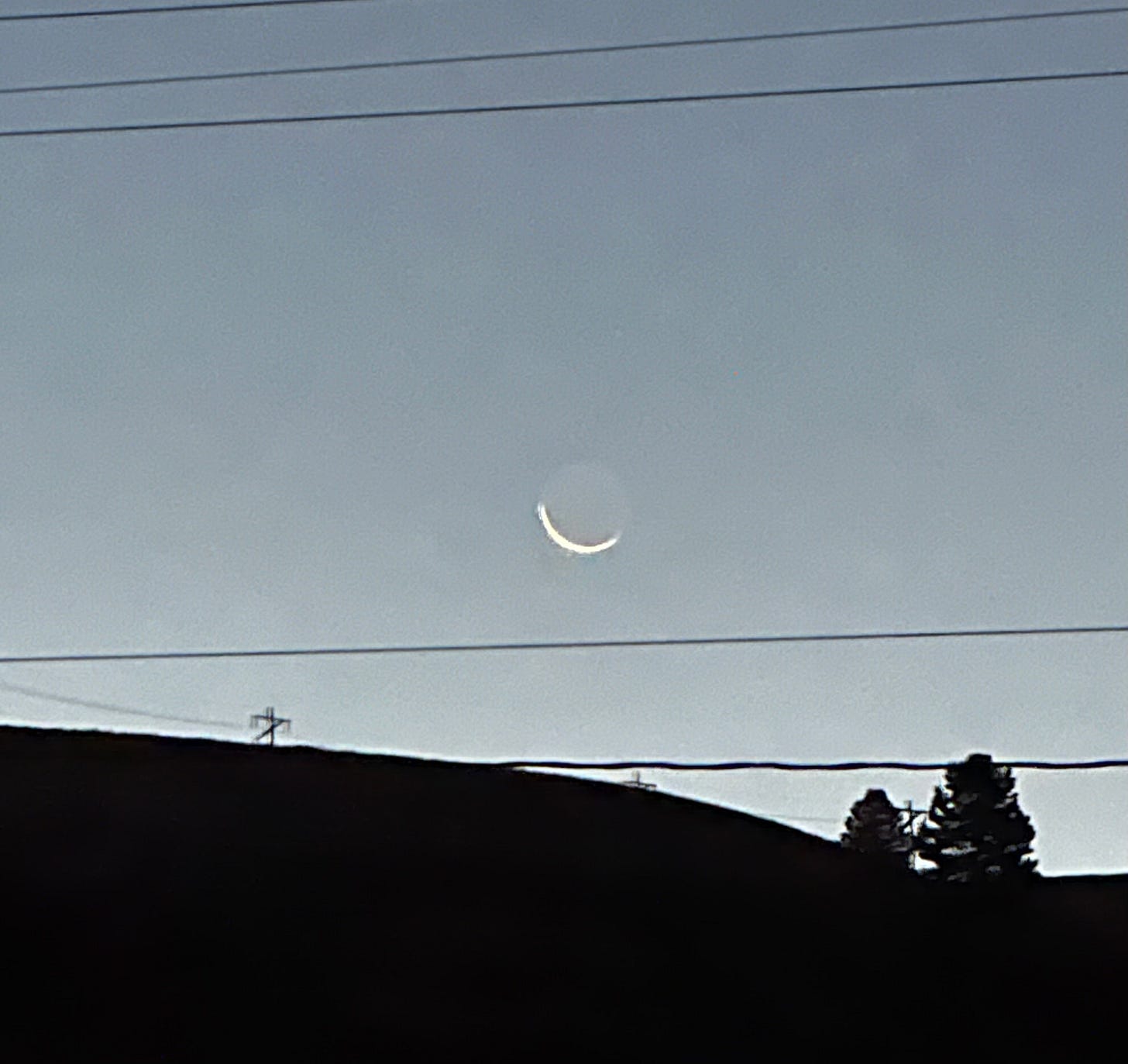A small group of three friends and I have been in a text group starting in 2020 when we embarked on a running challenge together. Our thread will sit dormant for months, and then someone will pop up with a “how’s everyone?” I’m the only one who isn’t still running regularly, but they let me stay anyway. One day this week I woke up to 14 texts from folks checking in, mainly because people are really battling the dark and the blues that comes from waking in it, eating dinner in it, of enduring the long dark nights and months of winter.
In Montana we are so far north, and especially on the western side of the state where we approach the Pacific time zone, that we experience wide swings in our daylight. Right now the sun rises well after 8 am and sets before 5 pm. In the summer, those times change to near 5 am and 10 pm, adding about 8 hours of light to each glorious day. Then winter clamps down, frost kisses the fields, and darkness descends. It is a profound change.
I understand my friends’ laments and know that some people do suffer from seasonal disorders and chemical changes in their brains. I’m lucky that I don’t, and in fact I crave these dramatic astronomical and weather-related phenomena. The darker it is, the colder it is, the louder the winds howl, followed by deep snowfalls, or summertime pounding rainstorms and the brilliance of a fall sky…all this I love. I’ve written about my love of weather reporting and extremes. I don’t think I could live in a place without appreciable seasons, where 12 hours of light and dark are balanced year-round.
Partly it is my love of weather.1 Partly I am learning to appreciate celestial beings, and it’s harder to appreciate the stars in the summer if you go to bed early-ish, as I do. In my work with tribes to build language courses, I’ve been exposed to many words for some of the same things, like sun and moon as well as a few well-known constellations such as the Big Dipper and Orion. In Indigenous cultures these have different descriptions and different stories, and obviously names in their own languages.2 For example, Orion, the hunter, is known in Ojibwe as Wintermaker (Gaa-bibooniked) and in Crow as the Hand Star (ihkáwaleische).

People are always offering newcomers to Montana advice about how to manage winters here, and generally that advice centers on what to wear and how to maintain health and happiness in the cold weather. But I think learning to love the dark3 is of equal importance.
In the darkness of winter, we experience closer connections to the sky beings: stars, moon, planets. Nighttime animals, our relatives in the woodlands and waterways, are more easily glimpsed and remembered. And we may greet the dawn each chilly morning, our breath escaping in clouds that float toward the celestial dome, carrying early prayers and thoughts for the coming day.
Did you know there are many words for lovers of all kinds of weather? I am fascinated by a list of these words, found here.
If you are interested and have some time, here are two separate video playlists that tell stories. These were prepared for the Montana Office of Public Instruction some years ago. Blackfeet Skies and Crow Skies
If you wonder why my photos are mostly summertime dawn images despite the topic of this newsletter, it’s partly because my phone ain’t great with astrophotography. And also I wake up very early, especially in the summer.






Yes. The darkness and cold of winter suits me here in the upper northwestern corner of Washington State where there is often a cloud cover. It is a joy in the early morning hours to go out on my porch and see the Big Dipper in the northern sky and Orion in the southern sky when the cloud cover lifts. Sleep is deeper and more restful during the long cold nights. Love the reference to ihkaúutte, the weasel. I'm here by way of Chris La Tray's substack.
I was so excited to see this title. I am currently teaching Fools Crow to my juniors. "Coldmaker" teaches us so many lessons for life. Anna, you always have a way of finding me through your words.